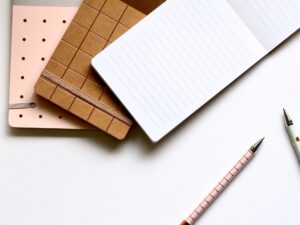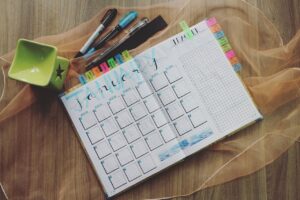Mojza Blog
Study Smarter, Not Harder
by Abia Amjad | 17 october 2022

Do you ever just sit back and reflect upon your life thinking, your efforts aren’t just adding up how you want them? Do you wonder what you could be doing to perform better in class and improve your college grades? Many of you recently have joined College and would be facing many difficulties as high school study habits aren’t very effective in College.
The professors are less personally involved, classes are more considerable, exams are worth more, reading is more intense, and courses are much more rigorous. That doesn’t mean there’s anything wrong with you; it just means you need to learn some more effective study skills. Fortunately, many active, effective study strategies are shown to be effective in college classes.
Studying smarter, not harder, means that you don’t have to slave over your work for it to be good. Remember that everybody works differently. Are you an early bird or a night owl? Don’t feel pressured to work a 9-5 if you don’t work as well at certain times. But be honest with yourself and your productivity.
It’s important to recognize that small things, like taking breaks, aren’t bad and will make your routine much more sustainable. You can find balance by using these tips to reduce your study time and using the rest to try a new activity, meet your friends, or shower. All of these things are equally important for your university life so make sure you find balance and feel proud of your achievements.
Here are some effective study techniques to work smarter not harder!
Be punctual in class
‘A’ students never miss a class. They also never miss the beginning or end of a class, because important announcements about exams and projects are often made then. If you find you lose concentration during lectures, record them on your phone or a simple voice recorder and listen again later.
Have a clear mindset
‘A’ students never miss a class. They also never miss the beginning or end of a class, because important announcements about exams and projects are often made then. If you find you lose concentration during lectures, record them on your phone or a simple voice recorder and listen again later.

Pay attention in class
Don’t underestimate the power of prioritizing. Now, this doesn’t mean only focusing on the things you want to focus on. If you are struggling with a class, look for the key concepts and work to master those. Paying attention to the main points in class could help you understand what’s been taught and save hours of busy work later. You should also train yourself to not be distracted while the teacher is speaking; turn off your phone or avoid sitting next to a friend who is likely to distract you.
Take old-fashioned notes
Some students believe note-taking is not for them, many studies have shown that students who take notes retain information longer. Not only that, but the best way to take notes is on paper, not a laptop. Studies at Princeton and the University of California show the mix of physically writing on paper and cognitive function increases memory. According to Harvard, students who type notes work fast enough to pass information straight from the lecture to their computer without even using the time their memory needs to process–not to mention the endless distractions present on their laptops. Handwriting notes take time, but it will help you in the long run.

Get in the zone
Create the ideal study space, and gather all the books and items you will need. This prep time also prepares the brain for study. Also, limit distractions – if you must listen to music, choose melodic music without lyrics, and of course, leave your phone alone and stay off social media.
Study in short chunks
Short study sessions help the synapses in your brain process information much better than lots of information in long sessions. Try setting aside 30-45 minutes before or after work to dedicate to your study. Avoid all-nighters, start planning and reading early in the study period and make a study schedule. Studying in the morning or ending all your work before evening helps you study more effectively than pulling all-nighters and straining yourself, sometimes those long night study sessions seem more tiring and annoying and one might not be able to study as one wants.

Make flashcards
Your brain stores information better when you’ve written something down after you’re read or heard it. So this means you’ll probably have to lose the highlighter and start writing the essentials on flashcards. You can use apps such as quizlet and aki flashcards to help you grind smoothly with your course work.
Sleep well and excerise
You absorb information better when you’re alert, well-fed, and rested – and even better after you’ve exercised. It’s important to ensure you’ve consumed nutritious foods to get your brain powered up – things like fish, nuts, berries, and yogurt. It also pays to stay hydrated and get up to move in between your 30-minute sessions.

Plan out your day
Before starting a new day, make a to-do list, make a list of study goals, and tick them off when you complete them. Not only will it motivate you and give you a sense of achievement, but it will also help you feel in control and reduce any study stress.
Read our blog How to make a study schedule and follow it!
Develop a habit of studying everyday
Beware of ‘easy’ weeks. This is the calm before the storm. Lighter work weeks are a great time to get ahead on work or to start long projects. Use the extra hours to get ahead on assignments or start big projects or papers. You should plan to work on every class every week even if you don’t have anything due. It is preferable to do some work for each of your classes every day. Spending 30 minutes per class each day will add up to three hours per week, but spreading this time out over six days is more effective than cramming it all in during one long three-hour session. If you have completed all of the work for a particular class, then use the 30 minutes to get ahead or start a longer project.

Acknowledgements
Author: Abia Amjad
Proofreaders: M. Ali Kalim
Recent
Mojza
About Mojza
Mojza is a student-led organisation aiming to provide quality resources for Cambridge students.
Other than such weekly blogs, Mojza offers resources for your O levels, IGCSE, and A levels journey. We have notes from reputable teachers, our own original notes and a library of other helpful websites and resources!
Check out our home page!
Published: 17 October 2022
Last Updated: 17 October 2022
Written by Abia Amjad
